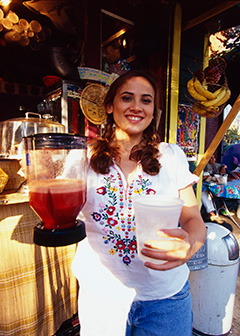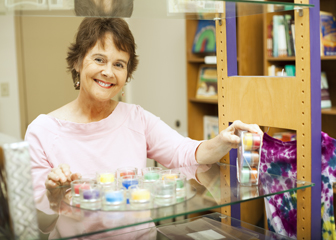Summary

| Quick Facts: Demonstrators and Product Promoters | |
|---|---|
|
$23,110 per year
$11.11 per hour |
|
| High school diploma or equivalent | |
| None | |
| Short-term on-the-job training | |
| 90,100 | |
| 18% (About as fast as average) | |
| 15,800 | |
What Demonstrators and Product Promoters Do
Demonstrators and product promoters create public interest in products, such as cosmetics, housewares, and food. They encourage people and stores to buy their products by showing the products to prospective customers and answering questions.
Work Environment
Demonstrators and product promoters work long hours while standing or walking, with little time for rest. Many demonstrators and product promoters work part time and have variable work schedules.
How to Become a Demonstrator or Product Promoter
Demonstrators and product promoters need customer service skills and are usually trained on the job.
Pay
The median annual wage of demonstrators and product promoters was $23,110 in May 2010.
Job Outlook
Employment of demonstrators and product promoters is projected to grow 18 percent from 2010 to 2020, about as fast as the average for all occupations. An increase in hands-on and interactive marketing will lead to growth for this occupation.
Similar Occupations
Compare the job duties, education, job growth, and pay of demonstrators and product promoters with similar occupations.
O*NET
O*NET provides comprehensive information on key characteristics of workers and occupations.
Contacts for More Information
Learn more about demonstrators and product promoters by contacting these additional resources.








